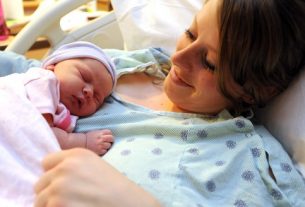“Seriozha, for heaven’s sake, what is she wearing?” Tamara Pavlovna’s voice rang with a venomous sweetness she made no attempt to conceal. “That dress is from a flea market. I saw one just like it last Saturday at a reseller’s stall.
At most — five hundred.”
I quietly adjusted the collar of my blue dress — simple, inexpensive. Like everything I wore. It was one of the strict terms of the cruel agreement I had made with my own grandfather.
Sergey, my husband, coughed nervously and looked away.
“Mom, that’s enough. The dress is fine.”
“Fine?” his sister Irina screeched, fanning the flames. “Seriozha, your wife has the taste of a… Well, what can you expect from an orphan from the sticks?”
She gave me a disdainful once-over, her eyes lingering on my thin wrists. Poorly hidden triumph flickered in her gaze.
“You could at least wear a bracelet. Oh, right — you don’t have any, do you?”
I slowly raised my eyes to hers. Calm, almost cold, as if I were studying a specimen under glass.
In my mind, I made a note: Subject No. 2 — Irina. Aggression level: high. Motivation: envy, desire to dominate by humiliating others.
It was like watching a pack of predators. Interesting. Entirely predictable.
Tamara Pavlovna gave a theatrical sigh and plopped down next to me on the couch, heavily laying a hand on my shoulder. She smelled of cheap hairspray and greasy food.
“Anya, we’re not your enemies. We want what’s best for you. It’s just… our son is a man of standing, a boss, a respected person. And you… well, you understand yourself.”
She paused, waiting for tears, excuses, trembling in my voice. In vain. I only observed.
Where was the Sergey I fell in love with? The confident, witty, free man? Now only a shadow sat before me — a puppet in the hands of his mother and sister.
“I have an idea!” my mother-in-law’s face lit up with her own genius. “You still have your mother’s earrings, don’t you? The ones with the tiny stones? You hardly wear them. Let’s sell them.”
Sergey coughed as if he’d swallowed air the wrong way.
“Mom, are you serious? That’s a keepsake.”
“Oh, what kind of keepsake?” Tamara Pavlovna waved dismissively. “A keepsake of poverty? At least they’d do some good. With the money, we’ll buy Anya a couple of decent outfits. And a new grill for the dacha. Everyone wins.”
Irina immediately chimed in:
“Of course! Those earrings on her look like a harness on a mare anyway.”
They didn’t realize they weren’t humiliating me. They were exposing themselves — their pettiness, greed, and spiritual poverty.
I looked at their faces, twisted with smugness and a sense of superiority. Every word, every gesture — straight out of a textbook. Perfectly fitting my hypothesis.
The experiment was progressing according to plan.
“Fine,” I said quietly.
Silence fell in the room. Even Sergey stared at me in surprise.
“What do you mean, ‘fine’?” my mother-in-law asked.
“I agree to sell them,” I allowed myself a slight smile. “If that’s what’s needed for the family.”
Tamara Pavlovna and Irina exchanged glances. For a moment, doubt flickered in their eyes, but it quickly drowned in the euphoria of victory. Once again, they mistook my strategy for submission.
To me, they weren’t family — they were pieces on a chessboard. And they had just made their move straight into the trap.
The next day, my mother-in-law dragged me to a pawn shop. Irina accompanied us like a spectator at a show. Sergey drove in silence, his face grim. He tried to object, but his mother snapped:
“Don’t interfere! Can’t you see she walks around like a beggar?”
The pawn shop was a cramped little room with bars on the window and the stifling smell of old metal. The appraiser — a man with tired eyes — lazily took the velvet box I handed him.
He examined the earrings through a loupe for a long time. Tamara Pavlovna tapped her nail impatiently on the counter.
“Well? They’re gold, right? The stones sparkle. You’ll give twenty?”
The appraiser snorted.
“Gold, yes, 585 proof. But the stones are cubic zirconia. Cheap work. Five thousand. And that’s being generous.”
My mother-in-law’s face stretched out. Irina snorted in disappointment:
“Five? I thought at least enough for a pair of boots.”
I did exactly what they expected me to. Leaned forward and said timidly:
“Maybe we shouldn’t? They’re a keepsake… And five thousand is so little. Maybe we should check another pawn shop?”
It was a calculated move — a false compromise doomed to fail.
“Shut up, Anya!” Tamara Pavlovna barked. “What do you know? The specialist said five, so five it is!”
Irina chimed in:
“Exactly! Otherwise you’ll drag us all over town and get even less. You always ruin everything with your stubbornness.”
Sergey tried to intervene again:
“Mom, maybe we could go to a jewelry store instead?”
“Shut up!” his sister cut him off. “Are you under her heel now? We decide what’s best for the family!”
They got the money. And right there on the street, they split it. Three thousand to Tamara Pavlovna: “For the grill and seedlings.” Two to Irina: “For an urgent manicure.”
“And what about… the blouses for me?” I asked softly, still playing my role.
Irina laughed loudly in my face:
“Oh, Anya, don’t joke. For that pittance — maybe a thrift shop.”
They left, satisfied, leaving me with my husband. Sergey looked broken. He hadn’t defended my memory or me. Another point in his personal dossier.
“I’m sorry,” he mumbled, staring at the ground.
“It’s okay,” I gently took his arm. “I understand. This is your family.”
But the real blow came that evening. When I got home, I saw the nightstand was empty. The laptop was gone. An ordinary-looking one, but in reality — protected, triple-encrypted. My key to information, plans, controls.
My heart froze for a second. But my face remained calm.
“Seriozha, where’s my laptop?”
Irina entered the room, all smiles.
“Oh, you mean that relic? I took it. Mine broke, and I need to work urgently. What do you need it for? You don’t work. Watch movies on your phone.”
I slowly turned to her. My face — a mask. Inside — a mechanism clicked. Loudly. Finally.
The trap closed. The last participant entered the cage. Everything needed for the final phase was in place.
That laptop wasn’t just a thing — it was the key to my real life.
My working tool. An encrypted portal to a world none of them even suspected existed. Inside — reports, analytics, a chronology of every step of my social experiment. No hacker could break into its systems. But that wasn’t the point.
Theft. Open, cynical. Without shame, without doubt. As if I were nothing. As if my right to personal space, to dignity — meant nothing.
I looked at Sergey. This was his last chance. His final test.
“Sergey, give me back my laptop,” I said. My voice was quiet, but not pleading. It was a command disguised as a request.
He hesitated. His eyes darted to his sister, then back to me.
“Ir, give it back, please. It’s hers.”
“Oh, come on!” Irina snorted, settling into an armchair. “You actually listen to her? I need it urgently! We’ll buy her a new one when you get your bonus.”
“Well, Anya, you heard her,” Sergey turned helplessly to me. “She needs it for work. Be reasonable. Don’t make a scene.”
At that moment, something inside me finally snapped.
This was rock bottom. He didn’t just stay silent. He took their side. Justified them. Condemned me.
The image of the Sergey I loved — confident, honest, free — crumbled to dust. I had clung to memories like a straw, but reality was concrete. He made his choice. Now it was time for me to make mine.
Enough.
The experiment was over. Data collected. Results unequivocal.
I pulled an old flip phone from my pocket. Found the contact labeled “Curator.” That line existed for only one scenario — activation of the final phase. I pressed call.
“Dmitry Alekseevich, good evening,” I said evenly, coldly, in a voice so foreign none of them recognized me. “The observation phase is complete. Proceed to action. For all three subjects. Initiate Protocol ‘Consequences.’ Start with the sister-in-law.”
I ended the call. Placed the phone on the table. Raised my eyes to Irina, who was watching me with feigned mockery and a growing, instinctive fear.
“You have ten minutes to return my laptop. In the condition it was.”
Irina giggled:
“Are you threatening me? With your curator? Who even are you?”
“I’m not threatening,” my voice turned icy. “I’m informing. In nine minutes and fifty seconds, your ‘urgent project’ will vanish from your company’s servers. And five minutes after that, your boss will have a full report of your involvement in passing trade secrets to competitors. That’s called corporate espionage. It carries criminal charges.”
Her face instantly went pale. The laughter died in her throat.
“You’re lying! You have nothing!”
“Nine minutes,” I said, glancing at the screen. “Countdown started.”
Irina’s eyes darted from me to her phone. At that moment it rang. The screen read: “GENNADY PETROVICH.” Her boss.
She snatched the phone with trembling hands.
“Yes, Gennady Petrovich… What? What report? No, it wasn’t me… That’s a mistake!”
She threw me a terrified glance. I silently nodded toward the laptop. Irina stumbled to the wardrobe, pulled it out, and threw it onto the bed.
“Here! Take it! Just tell them to stop!”
“Too late,” I said calmly. “The process is irreversible.”
Sergey, who had stood paralyzed until now, finally croaked:
“Anya, what have you done?! That’s my sister!”
I slowly turned to him. The mask was gone. No need to pretend anymore.
“You still don’t get it? You thought I was a poor provincial girl you could trample on, humiliate, hand out her things like spare rags? That I was furniture, not a person?”
I walked to the window. Below, by the entrance, stood a black sedan with tinted windows — inconspicuous, but significant. It wasn’t visible from their apartment.
“My last name isn’t what you think. I am Orlova. And my grandfather, whom you thought a modest pensioner, is the founder and head of Orion Capital investment holding. And all of this,” I swept my hand around the room, “was a one-year experiment. My grandfather’s condition: I had to live like an ordinary girl, without access to my status, to see why you married me.”
I gave a bitter smile.
“I wanted to prove him wrong. That you loved me, not my future fortune. But you… you exceeded all expectations. You showed your true selves: petty, greedy, cruel, ready to trample anyone you deem weaker.”
There was a knock at the door. I knew who it was.
“That’s Dmitry Alekseevich, my grandfather’s head of security. He’s here to collect my things. And to hand you documents.”
Sergey rushed to me:
“Anya, forgive me! I didn’t know! I truly love you!”
“You don’t love me,” I cut him off, stepping aside. “You love convenience. You love a woman who stays silent, doesn’t argue, doesn’t demand. You failed the main test, Sergey. Not once. Not once did you take my side.”
Dmitry Alekseevich entered. Calmly, without unnecessary words, he handed each of them an envelope.
“Irina Sergeevna — notice of dismissal for disclosure of trade secrets and notice of initiation of criminal proceedings. Tamara Pavlovna — demand for early repayment of the collateral loan due to breach of surety conditions. And you, Sergey,” he looked at him without a trace of emotion, “notice of termination of the lease. This apartment belongs to Orion Real Estate Fund. You have 24 hours to vacate.”
I took my laptop, my phone, and headed for the door. I didn’t look back. Not once.
There was no malice, no triumph. Only cold, almost scientific satisfaction. Task completed. Hypothesis confirmed.
Downstairs, a car was waiting for me. I got into the back seat.
“Home, Dmitry Alekseevich.”
I didn’t gain freedom. I gained confirmation. That trust should be placed not in words, but in actions. That real strength is not in wealth, but in the ability to stay true to yourself while playing the victim.
And that sometimes, to see a person’s true face, you just have to let them believe you’re weak.
Epilogue
Six months later.
Outside my office window on the 45th floor of Orion Tower, the sun was setting, painting the city in gold and crimson. I leaned back in my white leather chair, took a sip of water.
“You were harsh, granddaughter,” said my grandfather, sitting across from me. His voice even, without reproach. Just a statement.
“I was fair,” I corrected. “I gave them no more and no less than they deserved.”
He nodded. He always valued precision over emotion. He had taught me: any project, whether a billion-dollar deal or a human relationship, requires analysis, calculation, control.
“Your reports were impeccable. Psychological profiles, motivation analysis, behavior forecasts. You could head our analytics department.”
“I’ll think about it,” I smiled. “But first I need to finish one personal project.”
The fates of my former “family” turned out predictably. Irina was fired in disgrace. Her reputation plummeted faster than she could blink. She lost her lawsuits — my grandfather’s lawyers’ arguments were ironclad. Now she works as a cashier in a suburban supermarket, avoiding the eyes of former colleagues.
Tamara Pavlovna, deprived of support, sold the dacha to pay off her debt. Returned to her old apartment, where she now complains to neighbors about her “treacherous, deceitful daughter-in-law.” No one believes her. And rightly so.
And Sergey… His fall was the deepest.
He stood on the platform of his hometown station — the same one he once left for the capital full of hope. Now he returned with nothing. In his hand — a battered suitcase. In his pocket — his last money. He looked at the departing trains and, for the first time in his life, felt he’d lost not just an apartment, not just a job, but something greater.
He hadn’t betrayed a millionaire. He had betrayed the quiet Anya who loved him. And that realization weighed heavier than any bankruptcy.
“Do you regret it?” my grandfather asked, pulling me from my thoughts.
I thought for a moment.
“I regret that I hoped. That I believed you were wrong. That there was more to people than calculation and fear.”
“Some people have more,” he nodded. “But the ability to tell them apart — that’s the real capital, Anya. Not millions. Knowledge of people.”
He was right.
I had lost my illusions. But in return, I gained clarity. Learned to see behind smiles — contempt; behind care — greed; behind love — self-interest.
I understood: power isn’t in money, but in the ability to remain yourself, even when the whole world thinks you’re weak.
I looked at the city beneath me. It no longer seemed hostile. It was my world. A world where I set the rules.
And my next experiment wouldn’t be about testing people.
It would be about changing the system.



